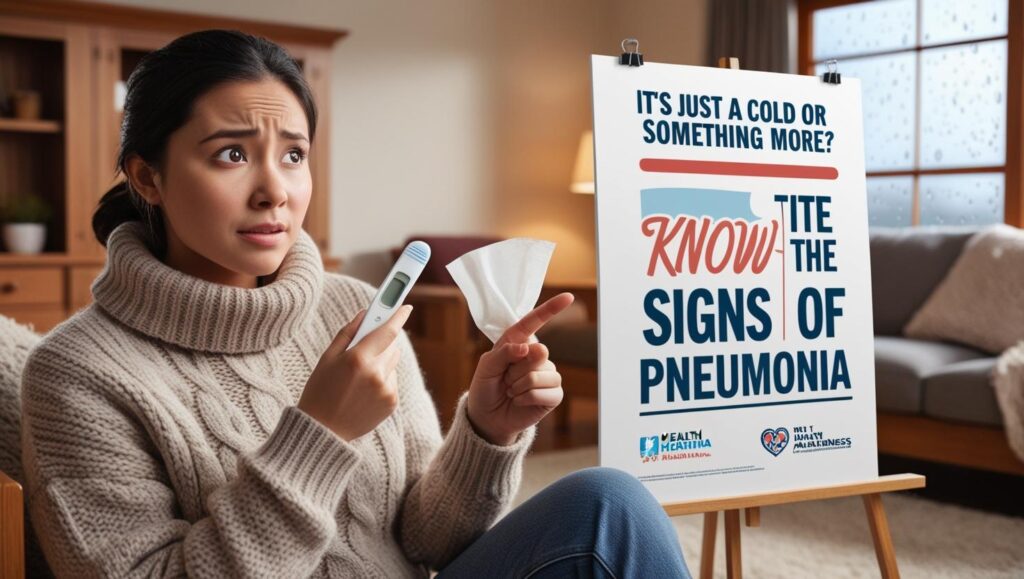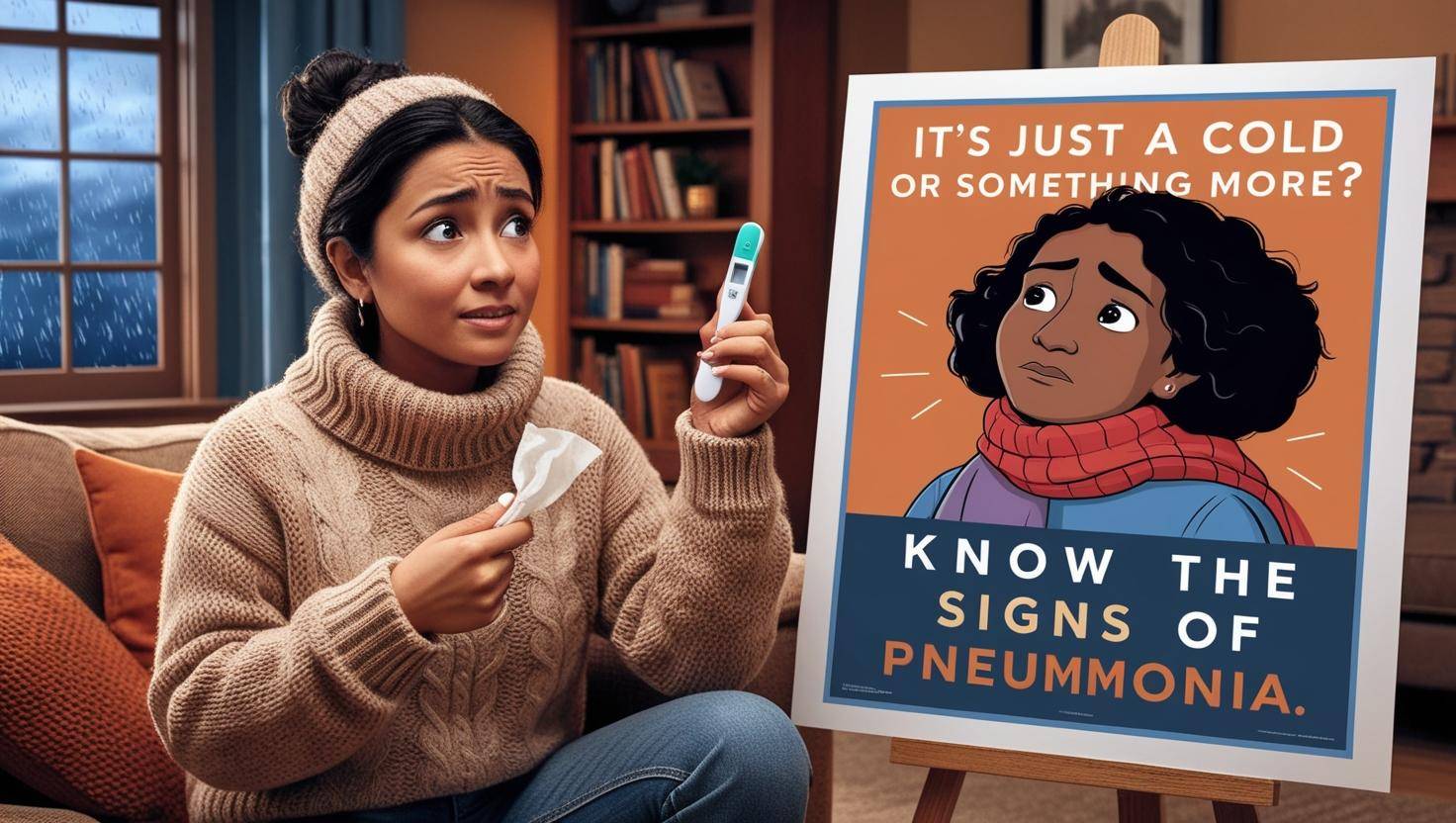Pneumonia is an infection that is common but potentially serious in people of all ages. Pneumonia is caused by bacteria, viruses, or fungi, and results in inflammation in the air spaces in the lungs, causing difficulty breathing. Pneumonia can be mild to severe, and in some instances, is potentially life-threatening. The most prevalent pneumonia-causing agent is the bacterium Streptococcus pneumoniae, but other bacteria, viruses, and fungi may also lead to pneumonia. Pneumonia is acquired in both communities and healthcare settings, and certain parameters such as being advanced in years, compromised immune system, smoking, or having chronic respiratory diseases increase one’s vulnerability to pneumonia. Early recognition of symptoms and urgent medical care is essential for proper treatment and recovery from pneumonia.
Pneumonia is an infection that inflames the air sacs in one or both lungs. The air sacs can fill with pus or fluid (purulent material), producing cough with pus or phlegm, fever, chills, and shortness of breath. Many kinds of organisms, such as bacteria, viruses and fungi, can bring about pneumonia. Pneumonia may range from mild to severe. Pneumonia is most dangerous in babies less than one year old, individuals over 65 years old, and individuals with health issues or compromised immune systems. Pneumonia can be categorized in numerous ways based on the cause of infection, where it was gotten, and by how it was acquired. Knowing about the varieties of pneumonia and their causes is crucial for proper treatment and diagnosis.
Common Symptoms of Pneumonia
The most prevalent symptoms for pneumonia include coughing, fever, chills, and shortness of breath. The cough is often productive for phlegm or pus, while the fever is often accompanied by sweating and chills. Other symptoms include chest pain on breathing or coughing, fatigue, and loss of appetite. Some individuals with pneumonia may also have confusion or mental changes, particularly in older individuals. The symptoms can range in severity depending on pneumonia’s cause as well as the individual’s health. Medical attention should be sought if symptoms exist, particularly if accompanied by high fever or shortness of breath.
Pneumonia symptoms range from mild to severe and depend on factors such as the causative organism, age, and health. General symptoms of pneumonia include chills, fever, difficulty breathing, cough with phlegm or pus, and cough that may have greenish, yellow, or bloody traces. Other symptoms include sweating, shaking chills, chest pain that is variable with breathing or coughing, fatigue, loss of appetite, and in older people, confusion. Any one or a combination of these symptoms should prompt one to seek medical care, particularly if high fever or breathing difficulty is also present.

Some less common symptoms include: Headaches
Along with common symptoms of pneumonia, there are also less common symptoms that in some instances might also develop. These less common symptoms can include headache, muscle pain, tiredness, nausea, vomiting, and diarrhea. Some individuals with pneumonia can also have an increased heart rate or bluish color to their lips and nails because of insufficient oxygen in their blood. These less common symptoms can indicate more serious pneumonia or infection complications.
Being conscious of these symptoms and seeing a doctor if experiencing them is important. Headache, muscle pains, fatigue, nausea, vomiting, and diarrhea can also be less common symptoms of pneumonia. Individuals with pneumonia could also have a rapid heart rate or blue coloration in the lips and nails because oxygen in the blood is lacking. These symptoms that occur less often can signal an advanced case of pneumonia or an infection complication. One should look for these symptoms when they develop.
Symptoms in Children and Infants
Children and infants can have symptoms related to pneumonia that are different from adults. Besides cough, fever, and breathing difficulty, some children with pneumonia might also have rapid breathing or wheezing, or have pain in their abdomens or vomiting. Some infants with pneumonia will not want to eat or might act irritable and more lethargic. Parents and caregivers should recognize these symptoms and contact their healthcare provider if they notice them. Pneumonia in children and infants can also be dangerous and can necessitate hospitalization for treatment.
Infants and children with pneumonia might have symptoms other than those experienced by adults. Along with cough, fever, and shortness of breath, children might also have wheezing or rapid breathing, in addition to stomach pain or vomiting. Infants might have trouble feeding or might feel irritable and drowsy. Parents and caregivers should recognize these symptoms and seek medical help if present.

When to Seek Medical Attention
Seeking medical care is crucial if symptoms of pneumonia have occurred, particularly if severe or if found in combination with high fever or shortness in breathing. Early discovery and treatment are key to successful recovery from pneumonia. Pneumonia in some instances may escalate to respiratory failure or sepsis if not treated. If symptoms of pneumonia have occurred in yourself or someone in your know, it is crucial that medical care is sought immediately.
It is essential to visit a doctor if symptoms of pneumonia are experienced, particularly if severe or accompanied by high fever or shortness of breath. Proper diagnosis and treatment are very essential in recovery from pneumonia. Pneumonia may in some instances lead to respiratory failure or sepsis if not treated. It is essential to seek immediate medical treatment if you or someone near you is experiencing symptoms of pneumonia.
Complications of Pneumonia
Pneumonia can have several complications if not treated or if the infection is serious. These complications could include respiratory failure, sepsis (dangerous response to an infection), pleural effusion (fluid accumulation between tissue layers covering lungs and chest cavity), lung abscess (pus-filled cavity in the lungs), and bacteremia (bacteria in blood). Pneumonia complications can become serious in nature and need hospital care. One needs to understand such possible complications and must seek medical care if some symptoms appear.
Pneumonia can have quite a few complications if it goes untreated or if it is very severe. Complications from pneumonia can include respiratory failure, sepsis (a serious reaction to infection that can lead to death), pleural effusion (fluid buildup between the membranes that surround the lungs and chest cavity), lung abscess (a cavity in the lung filled with pus), and bacteremia (bacterial infection in the blood). Complications from pneumonia can be serious enough to require hospitalization for treatment. Being mindful of such possible complications and going to see a doctor if any symptoms occur is crucial.
![]()






